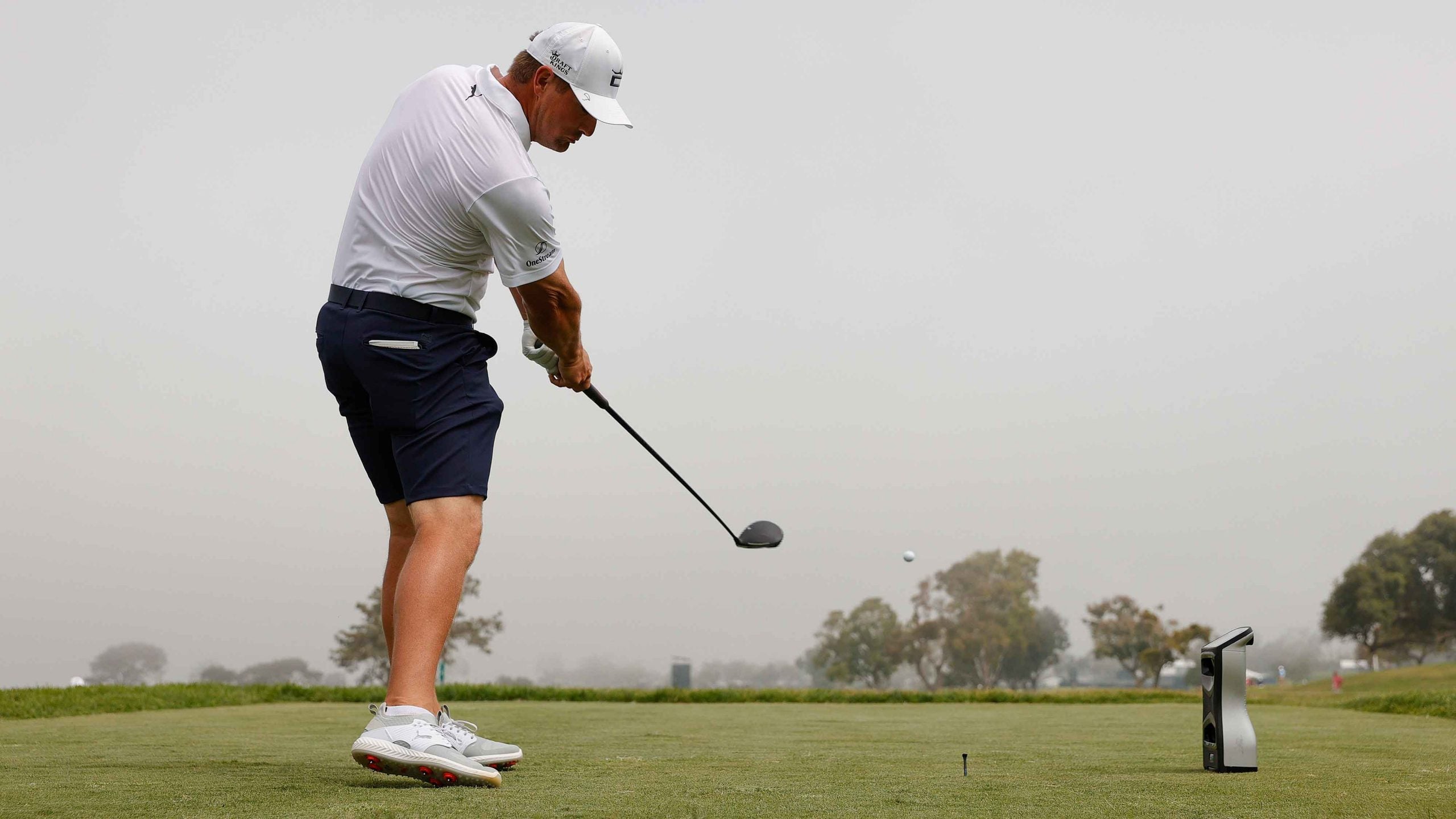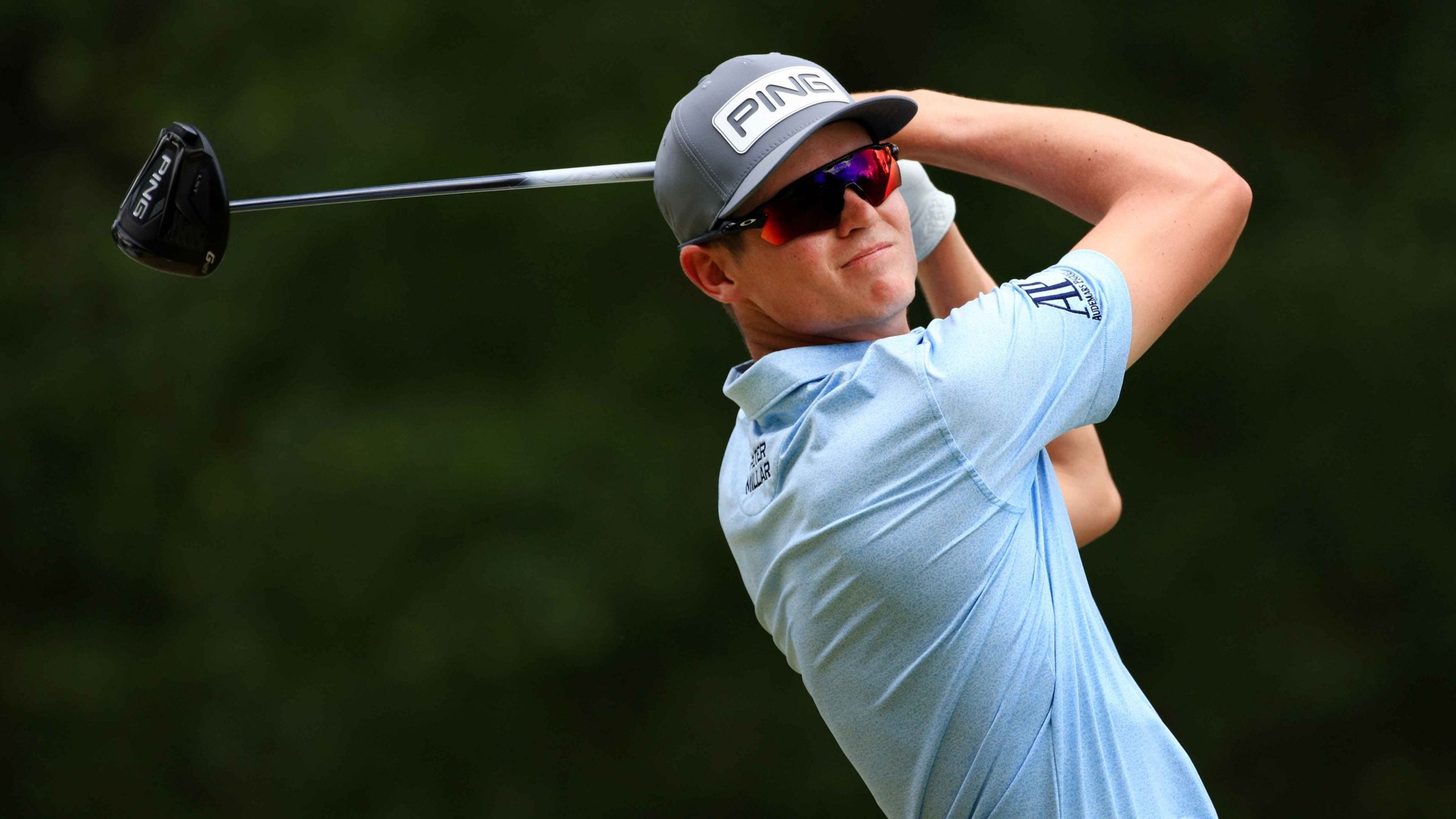GOLF has partnered with CDW and VMware to explore not only how the world’s best golfers, including defending champion Bryson DeChambeau, use technology to secure game plans for the U.S. Open but also how data can point toward which 2021 U.S. Open competitors are primed for a big week. Below, we look at the high-tech gadgets that help get the players U.S. Open-ready.
***
There’s no such thing as a U.S. Open cheat code. To tame one of the toughest tests in golf, you need some luck, a Teflon-coated psyche and a combination of dialed-in gear and a mastery of the course setup. For many players in the field, the latter can be achieved with an assist from high-tech devices and training aids that can help chart a potential blueprint for success.
Here’s a look at 5 devices found on the range and course during the 2021 U.S. Open.
1. Launch monitors
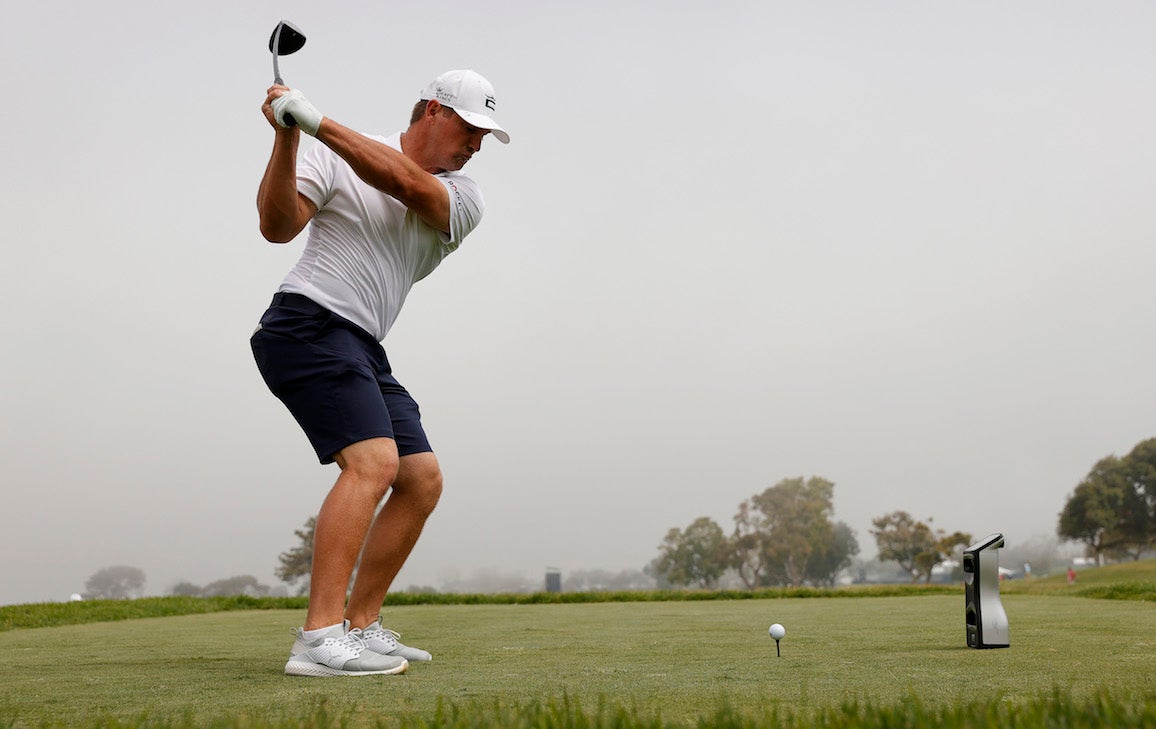
Launch monitors are as ubiquitous as an alignment stick on Tour. Nearly every pro at Torrey Pines is toting around a high-tech unit from Foresight, Trackman or Flightscope to get a better idea of stock carry yardages and how current conditions could dictate certain shots. DeChambeau and Phil Mickelson are just a few of the high-profile names who take the device from the range to the course to gather real-time data.
“We’re definitely trying to look at normalized data so we can get a good understanding of how much the wind is affecting the golf ball in this environment,” DeChambeau told GOLF.com. “For example, if the [Foresight GC Quad] device tells you I’m hitting it 120 yards, and then on radar, on FlightScope, it’s saying it went 125 yards, well, obviously there’s 5 yards of wind. That’s how we utilize it one way.”
2. Quintic Ball Roll
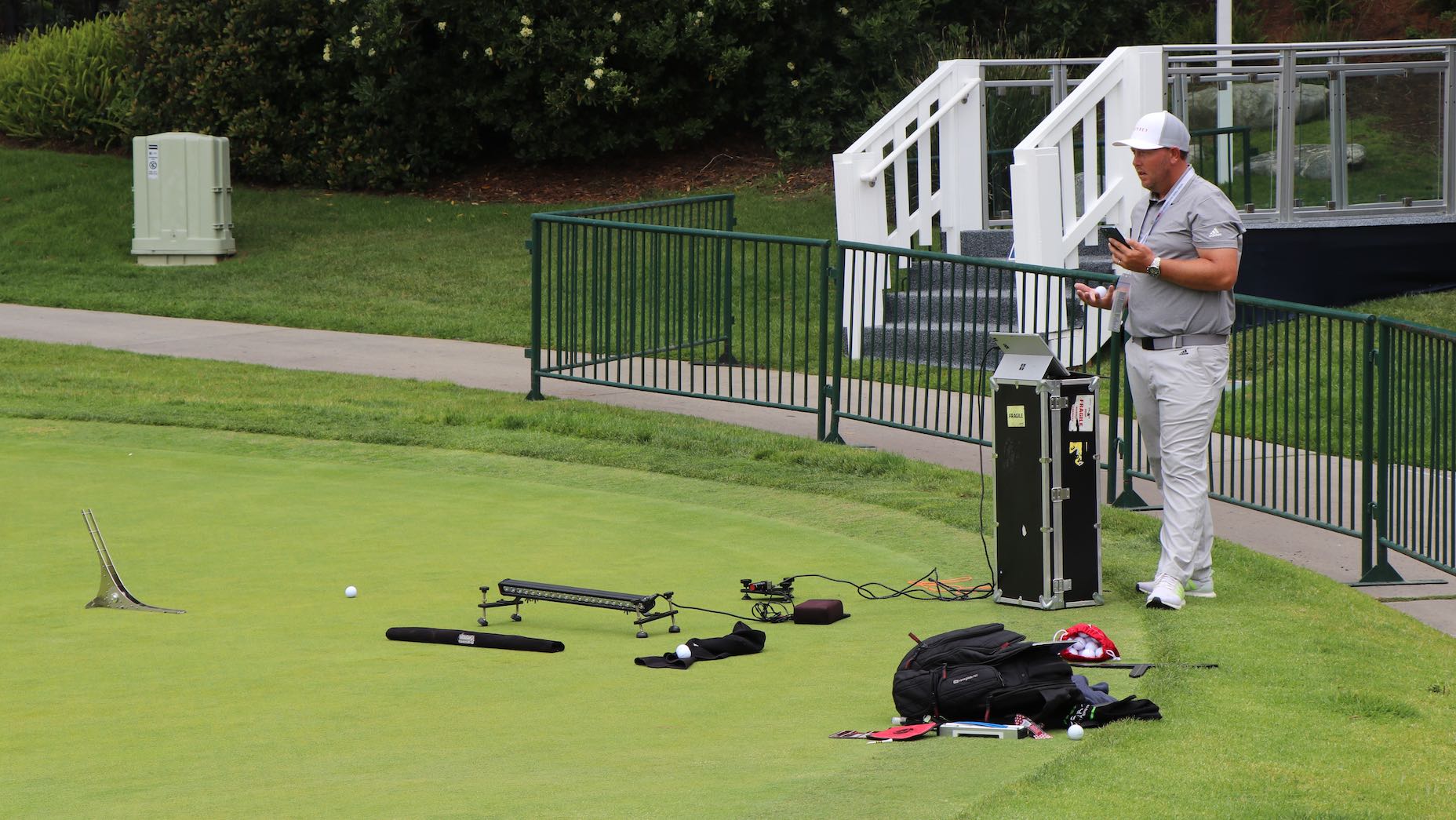
While it isn’t as commonplace as a launch monitor, several pros (DeChambeau included) use Quintic’s high-speed camera to track the head and ball through the impact zone. For someone like DeChambeau, the device gives him a better idea of launch, topspin and speed, which comes in handy at a major on Poa annua grass where altering putter loft to optimize launch can be a significant advantage.
3. Rangefinders
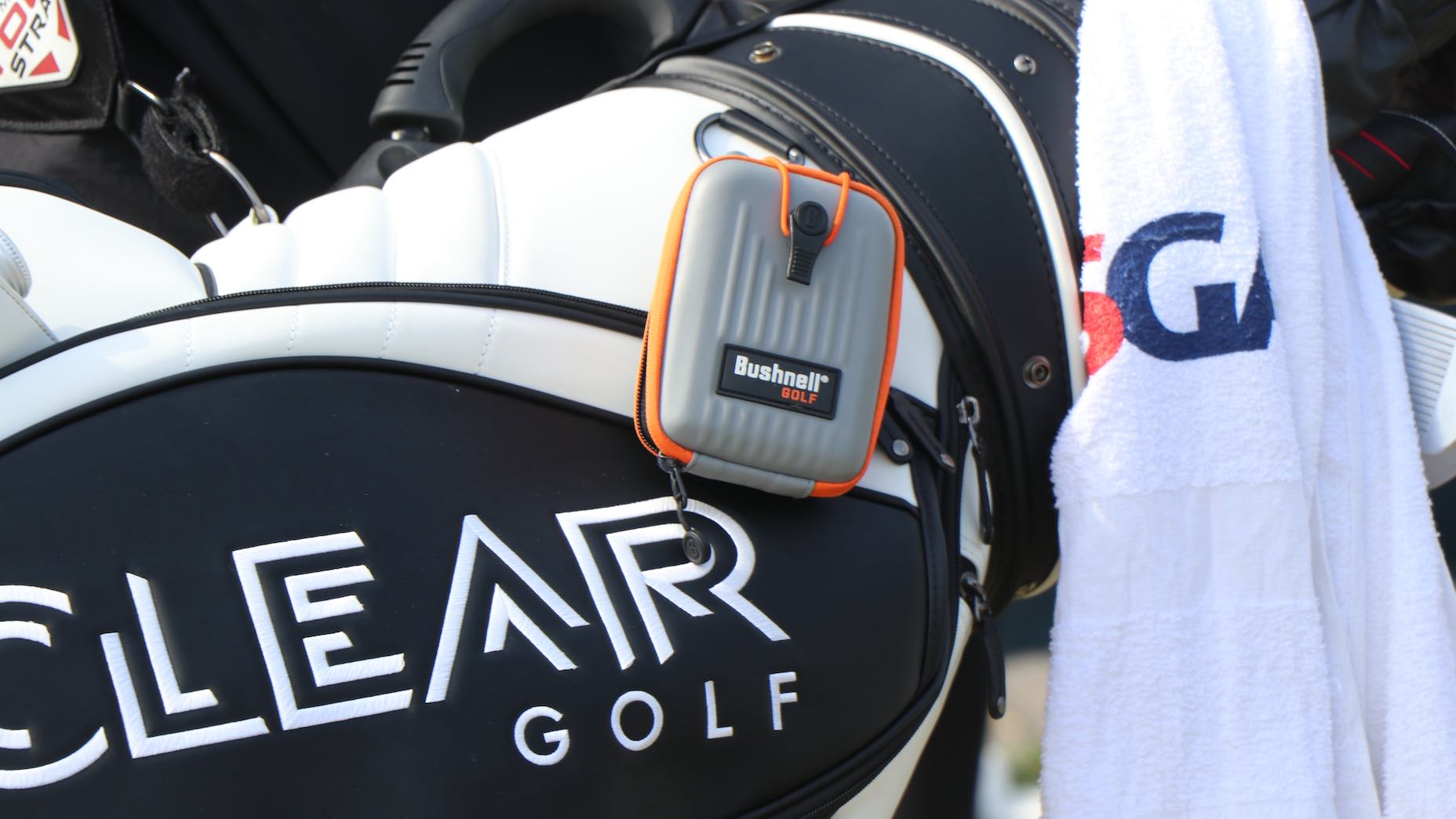
Unlike at the PGA Championship, where distance-measuring devices were given the green light for competition, the USGA will allowed players to utilize the units only during practice rounds. Many of today’s top-end units account for barometric pressure, elevation and temperature to calculate the number to the target. For a caddie who’s attempting to plot the course, a rangefinder can take out a lot of the guesswork. There’s a reason why every pro has a rangefinder inside the bag during the tournament week. Shop for rangefinders here.
4. Putting practice tools
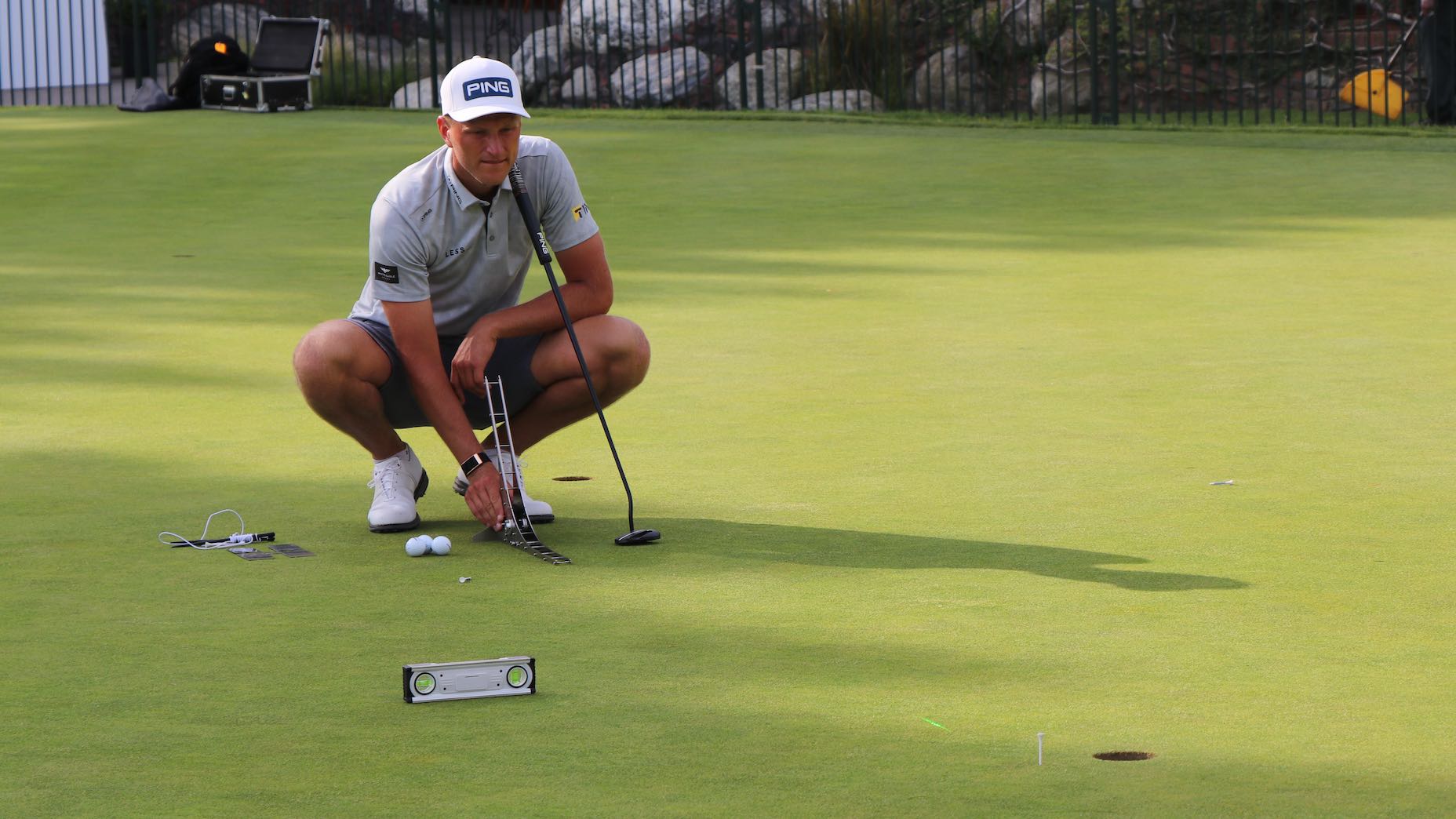
Plenty of players in the field at Torrey will rely on a device that’s typically reserved for build sites — a digital level (above, in the foreground). The level is designed to practice measuring slope (especially those using the AimPoint method) and works in tandem with a training aid like the Perfect Putter (also above) to find the correct speed-line combination during practice sessions. It also doubles as a Stimpmeter.
5. Club training aids
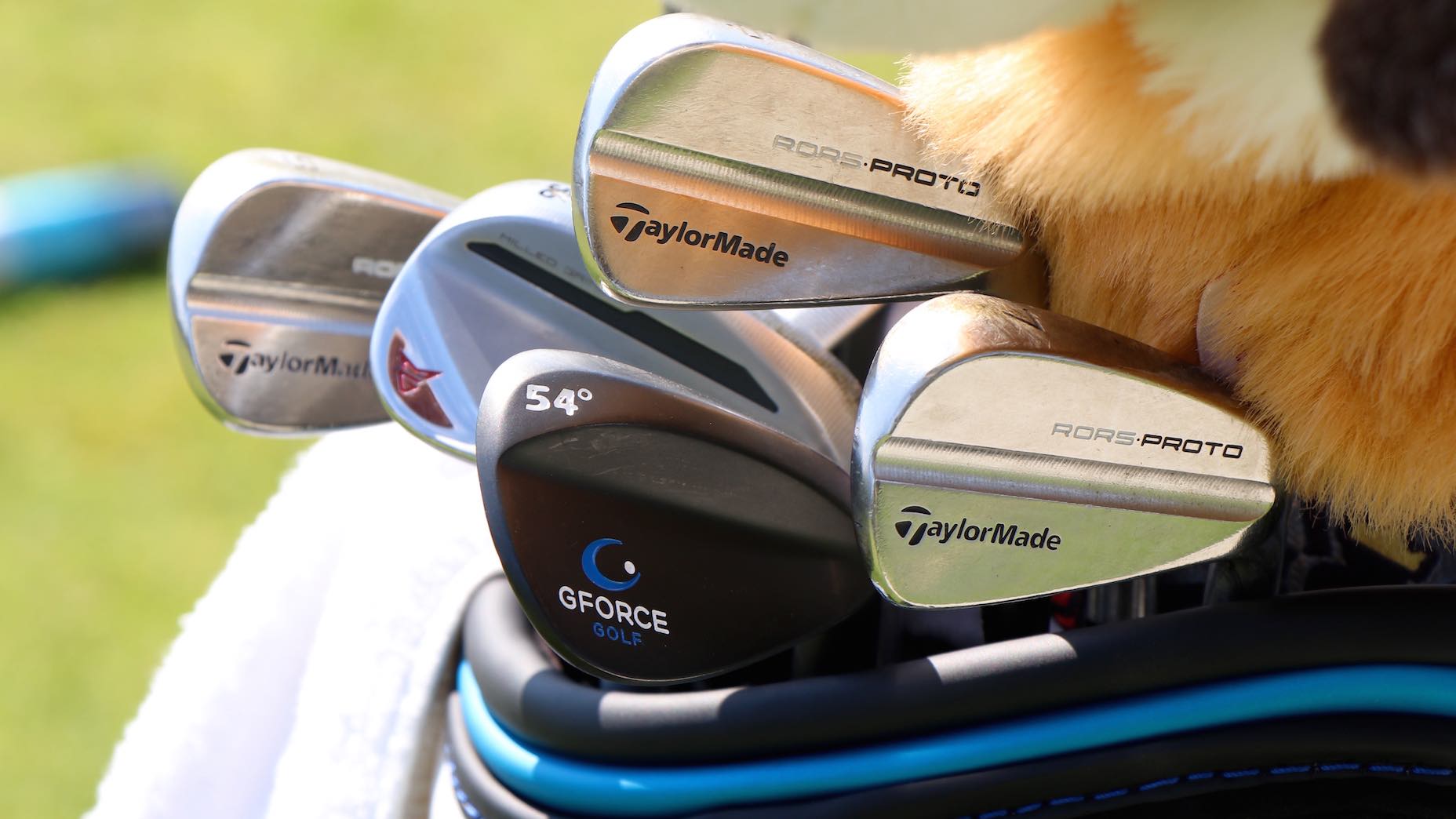
Even the best players in the world need a training aid to get their games back on track, including Rory McIlroy. The GForce swing trainer (black clubhead above) is designed with a flexible shaft that enhances head awareness to groove rhythm, timing transition and release. With a 54-degree situated in the bag at Torrey Pines, it would appear McIlroy is working hard on his approach game.
Want to overhaul your bag for 2021? Find a fitting location near you at GOLF’s affiliate company True Spec Golf. For more on the latest gear news and information, check out our latest Fully Equipped podcast below.


